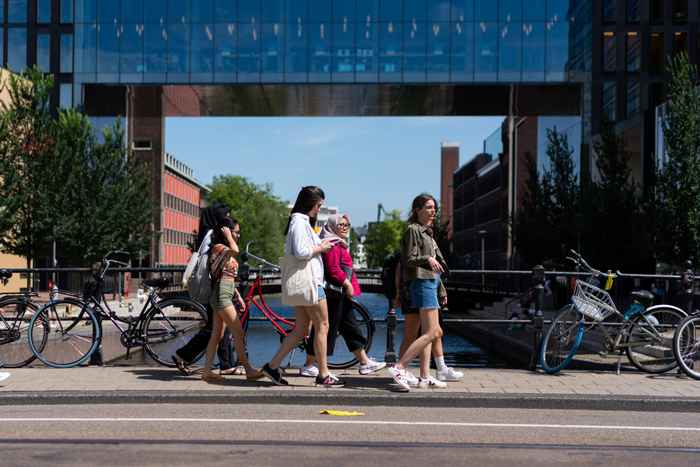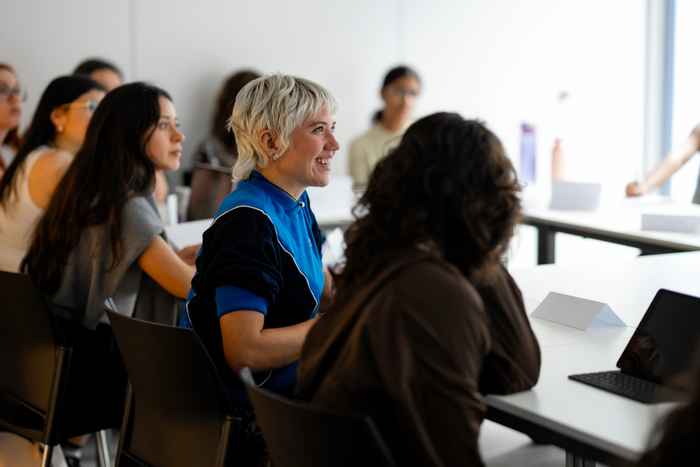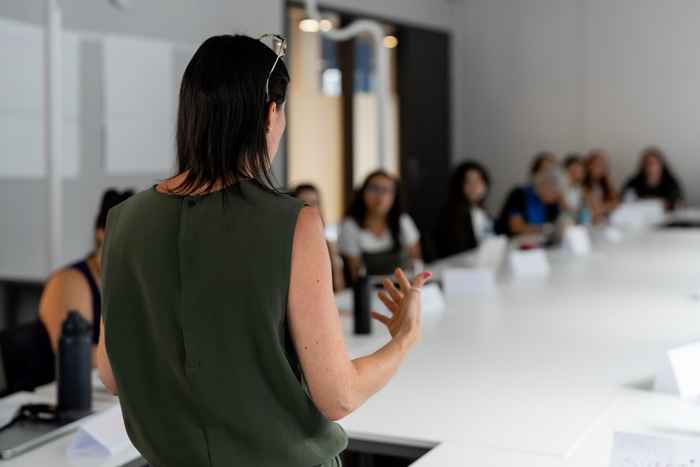Emotions: An Interdisciplinary Perspective
Scholars have long recognized the importance of emotions, yet the last decades have seen an explosion of empirical research and theoretical developments on emotion and how it affects daily life. This interdisciplinary summer school examines emotion, how it is defined and measured, and what role it plays in societal issues. Through interactive lectures, practical exercises, and assignments, participants will learn about the state-of-the-art approaches to studying emotion in different disciplines including psychology, sociology, political science, and communication sciences.



-
Programme at a glance
Mode of instruction: On-campus (1 week) Academic dates: Monday 30 June - Friday 4 July 2025 Academic fees: Student fee:
€850. Read more about what is included in the fees.
Please note that housing is not offered for this programme. Credits: 2 European Credits. Read more about credits and credit transfer. Early admission deadline: Thursday 1 February 2024.
Students who require a Schengen Visa to study in the Netherlands are strongly advised to apply before the early deadline to ensure there is enough time to secure a visa appointment before the programme begins.
Regular admission deadline: Sunday 15 March 2024 Who is this programme for? Level and background: (research) master students, PhD students, and post-doctoral researchers with an interest in emotions.
-
Programme Description
In this one-week program, we examine emotion from different disciplines. Participants will come to understand the role emotions play in a wide range of individual and collective processes and behaviors in daily life. Special attention is given to understanding emotions as they appear in real life, outside of the lab.
Participants will discuss relevant scientific articles in interactive lectures with faculty, and engage in practical exercises in the lab. Each day we will address a specific topic, from the measurement of emotion (e.g., ecological daily assessment, nonverbal behavior, physiological measures) to the role of emotion in societal issues.
Each morning, lecturers from two different disciplines will cover a topic. The topics include: Populism and Polarization, The Extensiveness of Emotion in Time and Space, Nonverbal Behavior, Body and Emotion, Emotion and Mental Health, and Collective Emotional Behavior.
In the afternoons, we will organize tutorials where researchers and students will have an opportunity to visit research labs and learn about various methods used in emotion research, such as coding nonverbal expressions, using physiological measures, charting emotions in space and time, using ecological momentary assessment, and applying qualitative methods in emotion research. We will also work on assignments and presentations and organize social activities.
Throughout the program, participants will have a chance to interact with expert emotion researchers from different disciplines and fellow students from around the world. This will provide an opportunity to actively engage with diverse state-of-the-art theories and empirical research approaches on emotion. The program aim is to expand participants’ knowledge and understanding of emotion as a key motivator of human behavior.
The list of speakers include: Agneta Fischer (Psychology), Bert Bakker (Communication), Elisa Militaru (Psychology), Marie Lindegaard (Sociology), Disa Sauter (Psychology), Ute Frevert (History of Emotion) Milica Nikolic (Child Development), Ilya Veer (Psychology), Gijs Schumacher (Political Sciences), and Laura Keesman (Sociology).
-
Academic Directors
Dr. Disa Sauter is associate professor of psychology at the University of Amsterdam. Her work examines emotion with a particular focus on the communication of emotions via nonverbal expressions. She studies how factors such as preparedness, culture, and learning shape our emotions and the way they are communicated. She is the president of the International Society for Research on Emotion, associate editor of Emotion Review, and coordinator of the interdisciplinary research priority area Real Emotion.
Dr. Milica Nikolic is an assistant professor of developmental psychopathology whose work examines emotional development with a particular focus on how, under which circumstances, and why social emotions emerge in human development. She studies how factors, such as genetics factors and environment (parenting practices) shape social emotions in childhood. She is a Board member of the International Society for Research on Emotion and the coordinator of the research priority area Real Emotion at the University of Amsterdam.
-
Explore our community
Want to get to know more about studying in Amsterdam? Follow us on social media and join our summer community. Get a feel for our summer school vibe and our academic and social community, and learn about studying with us through the eyes of past summer school students.
- Mode
- Short-term
- Language of instruction
- English
- Starts in
- June
- Location
- Roeterseiland campus